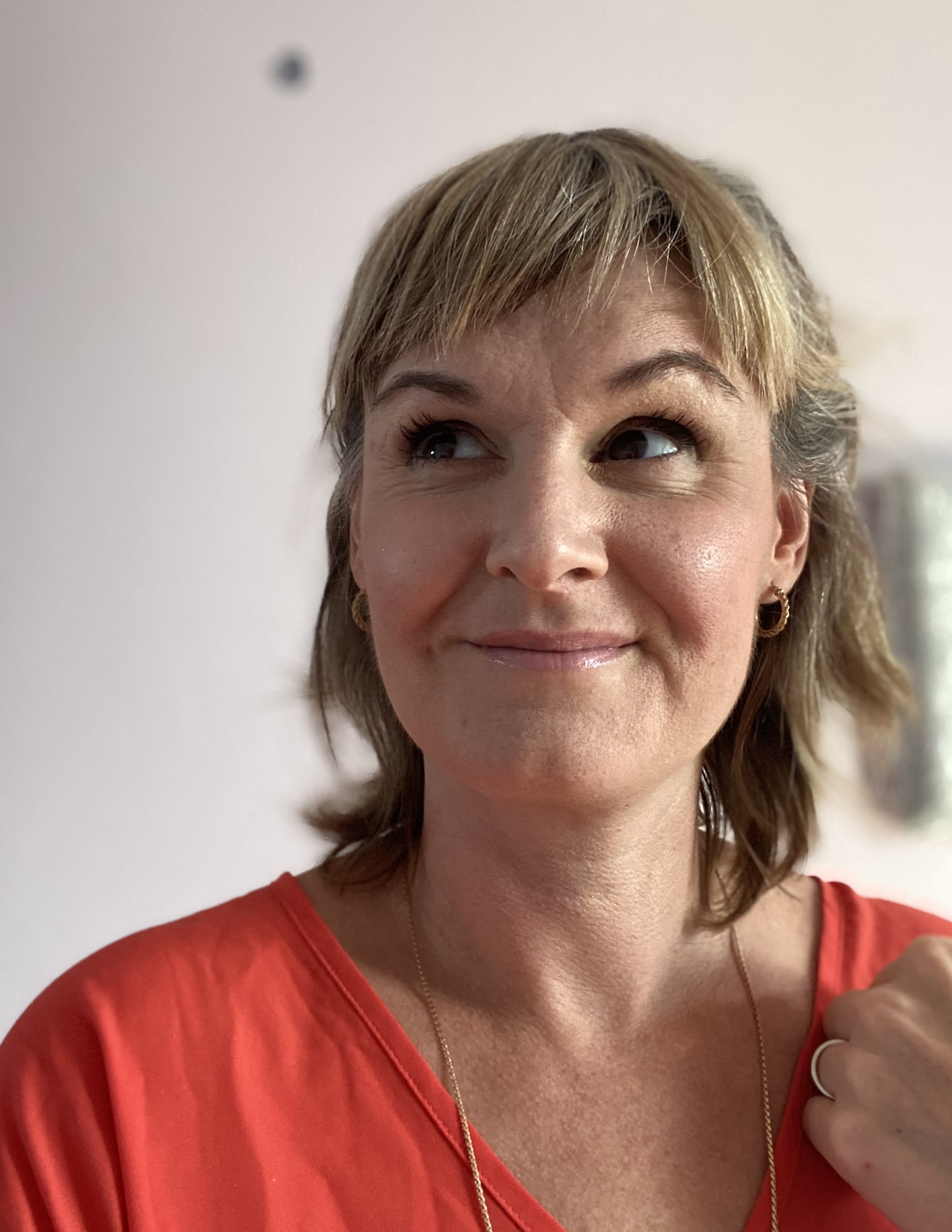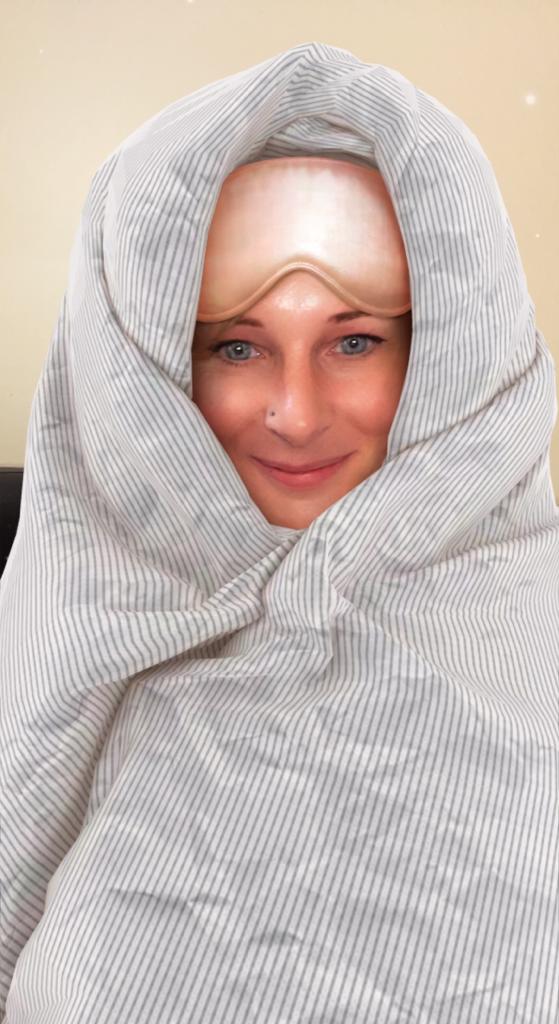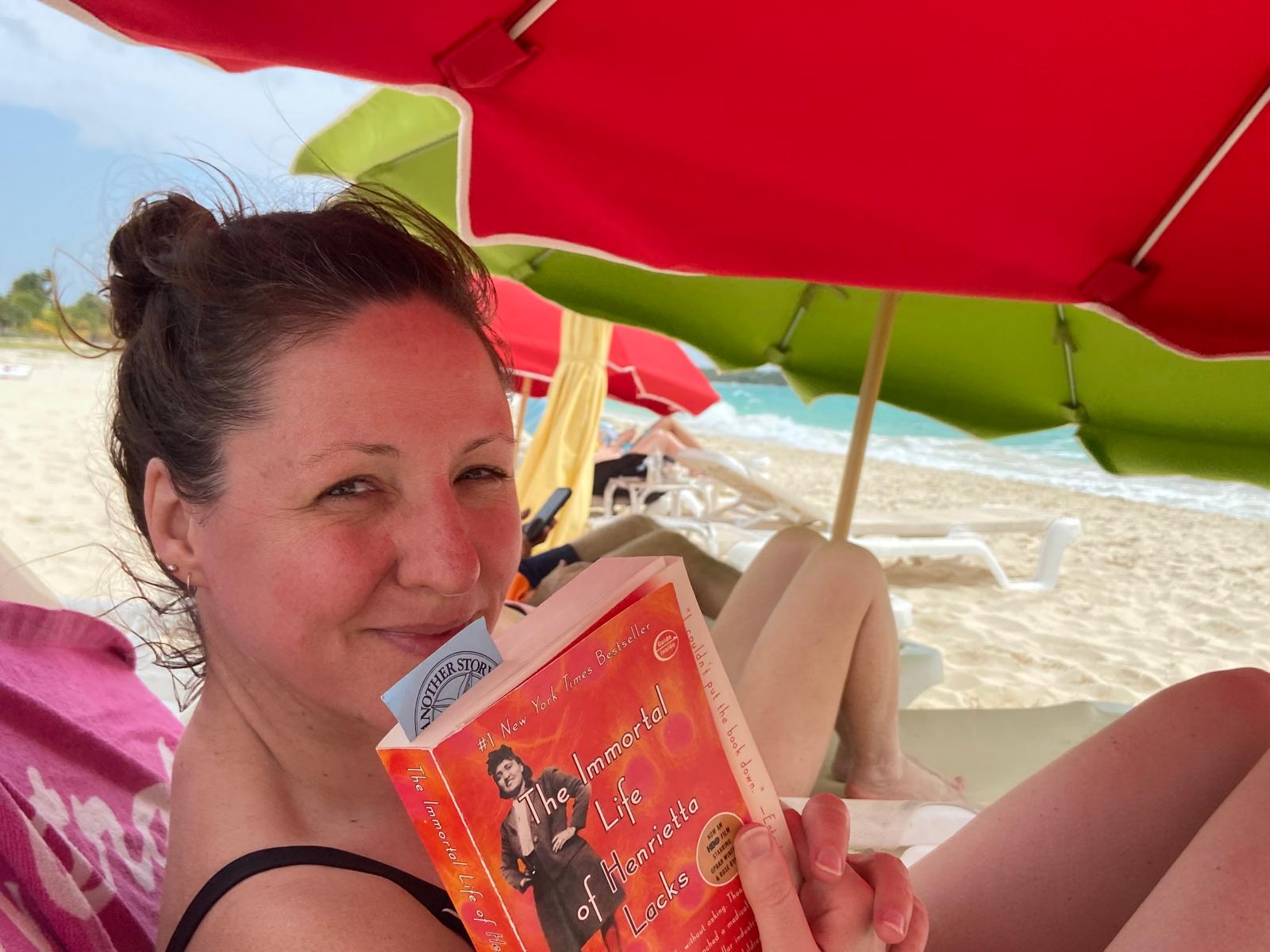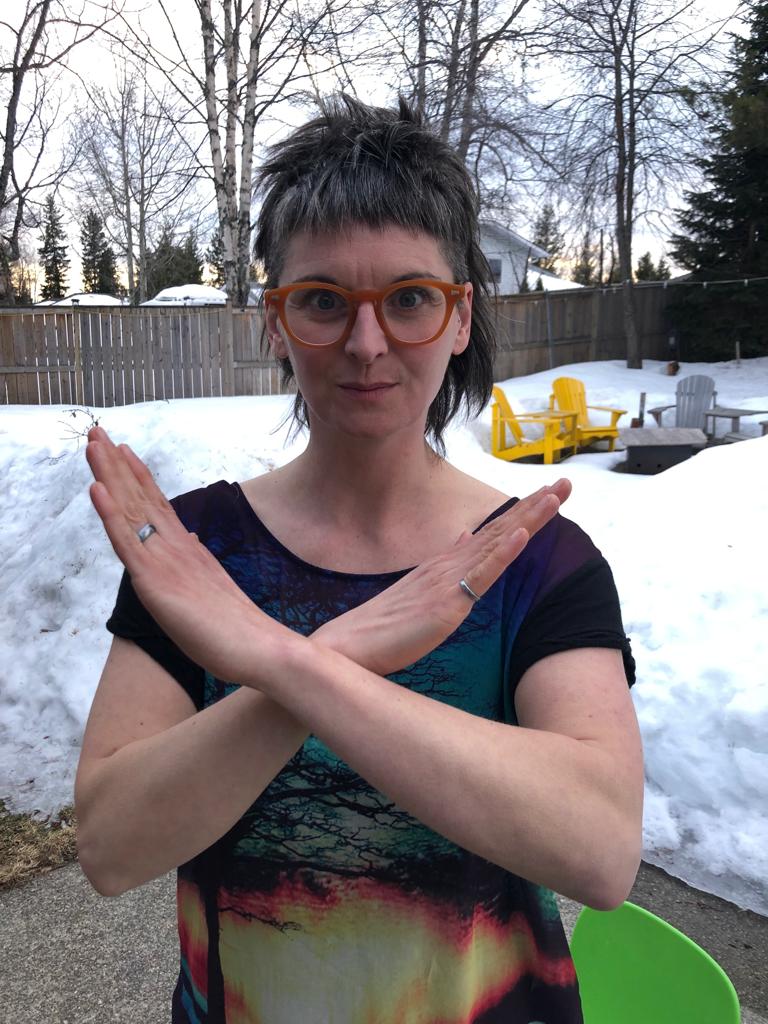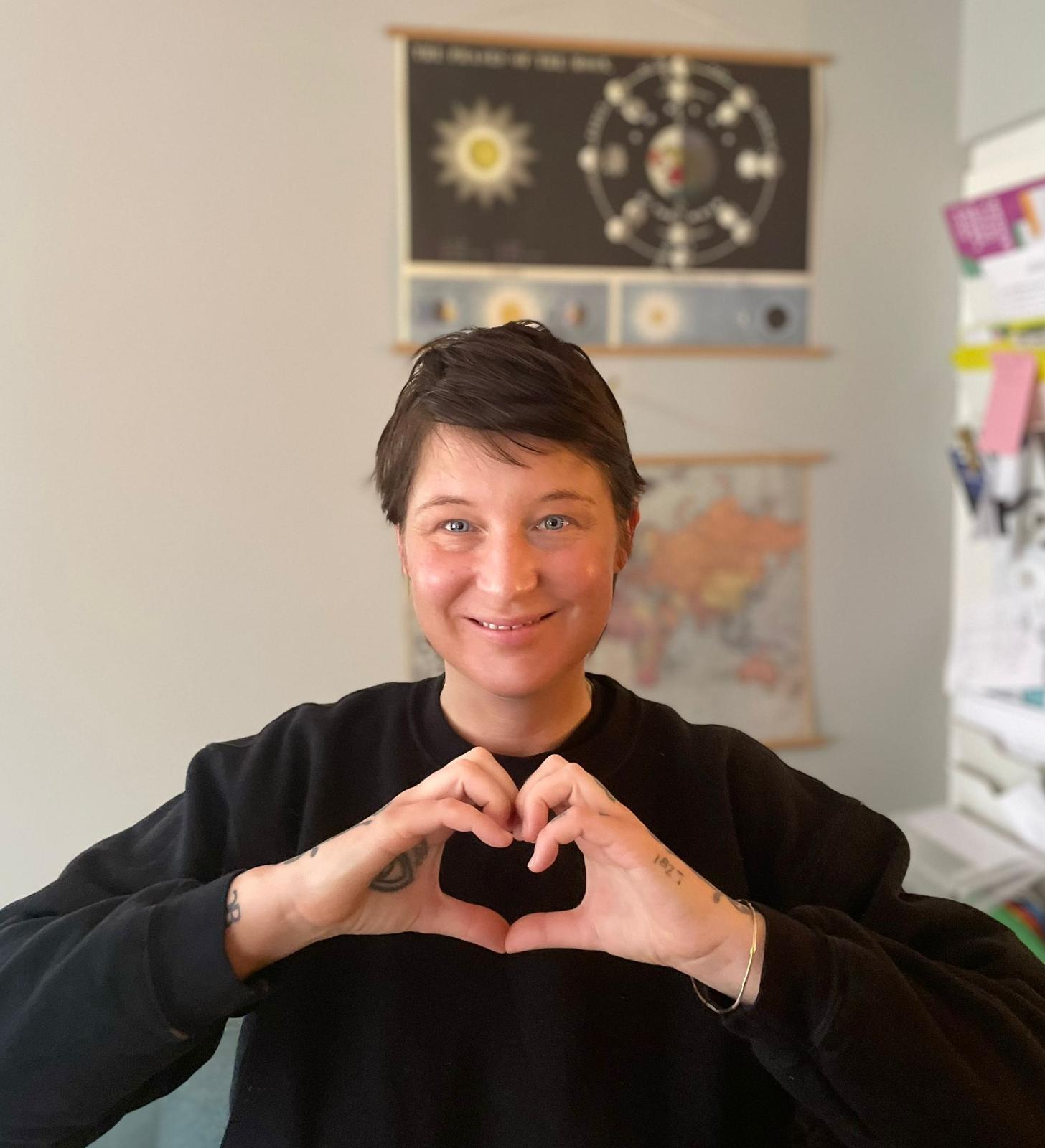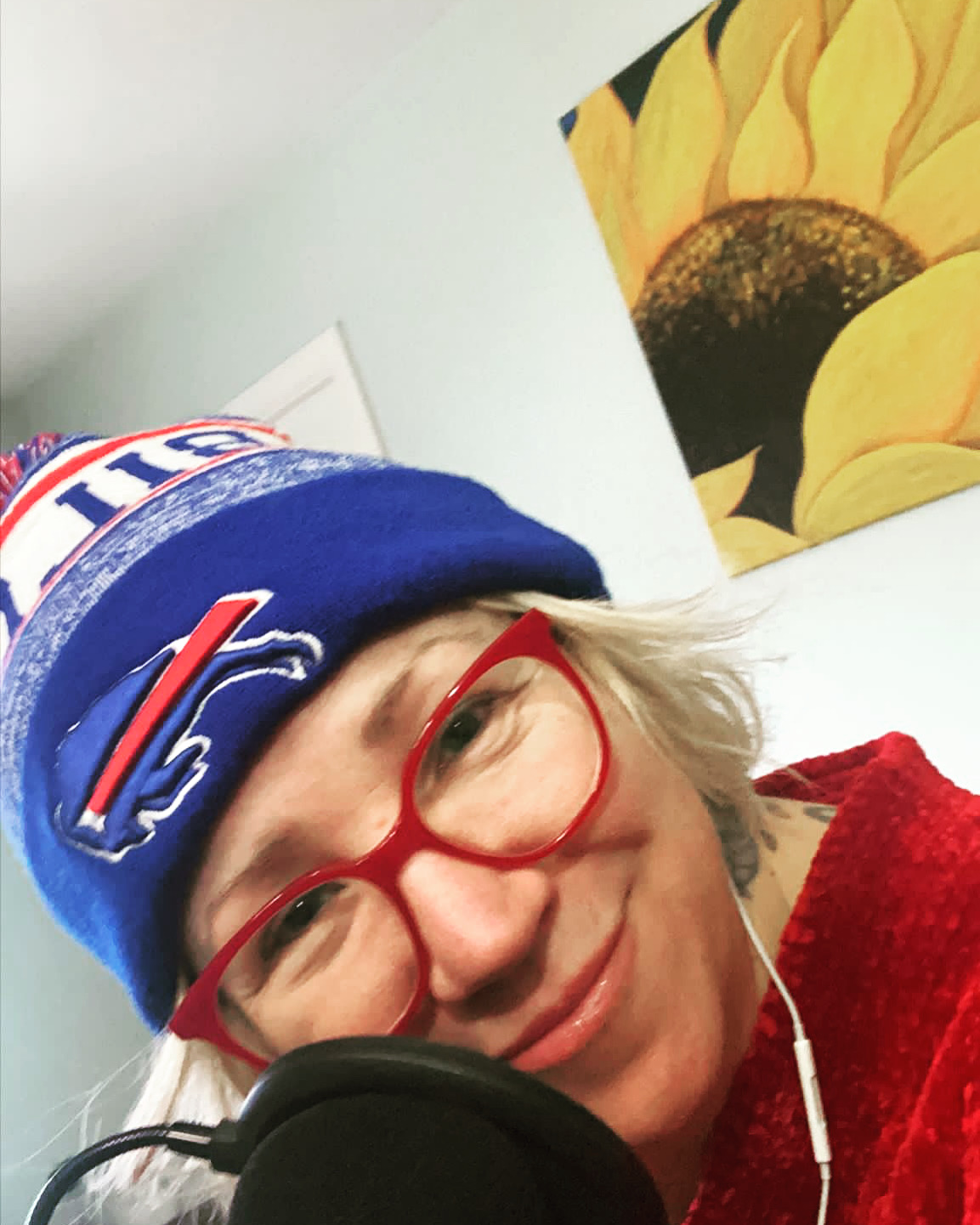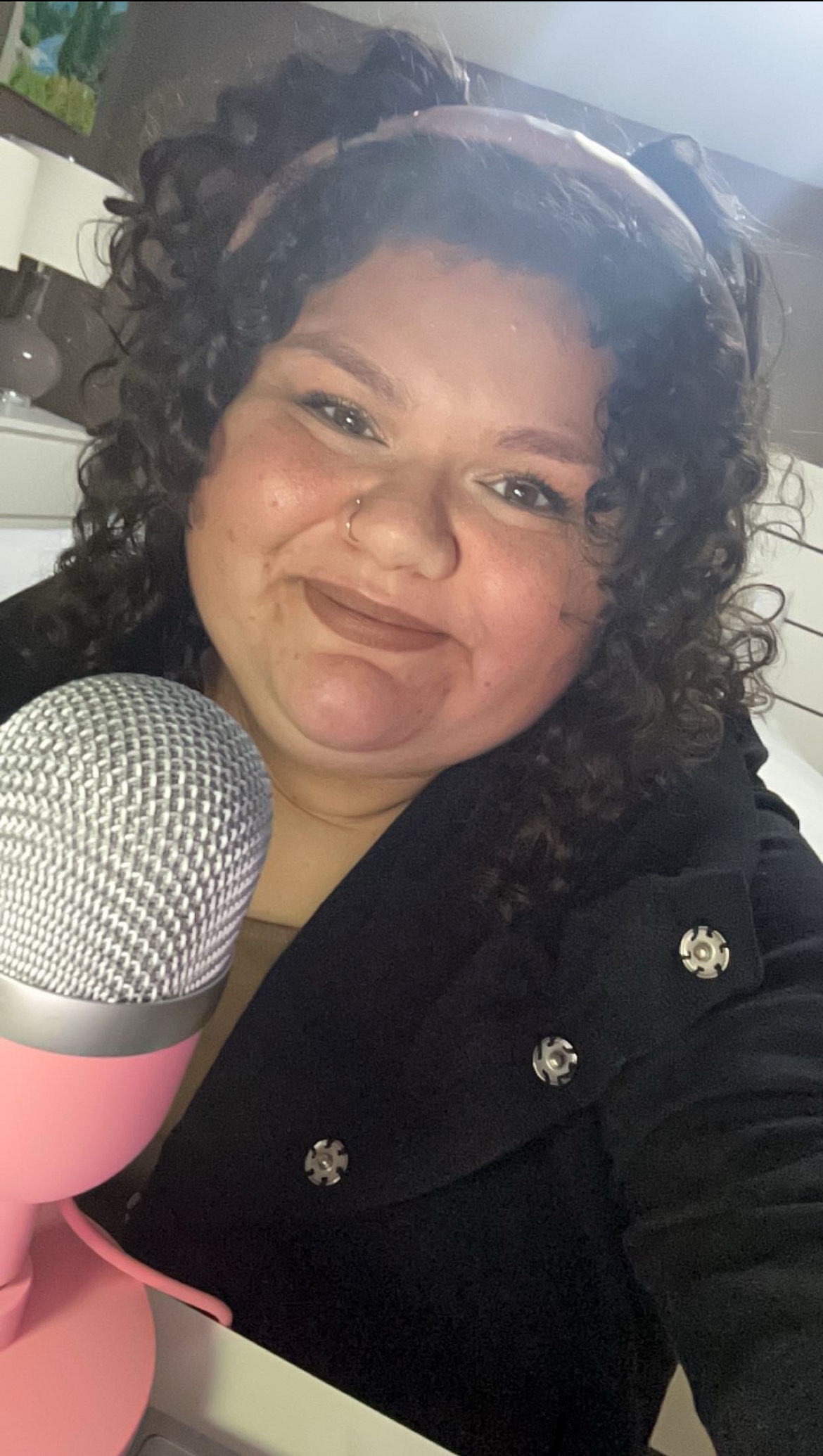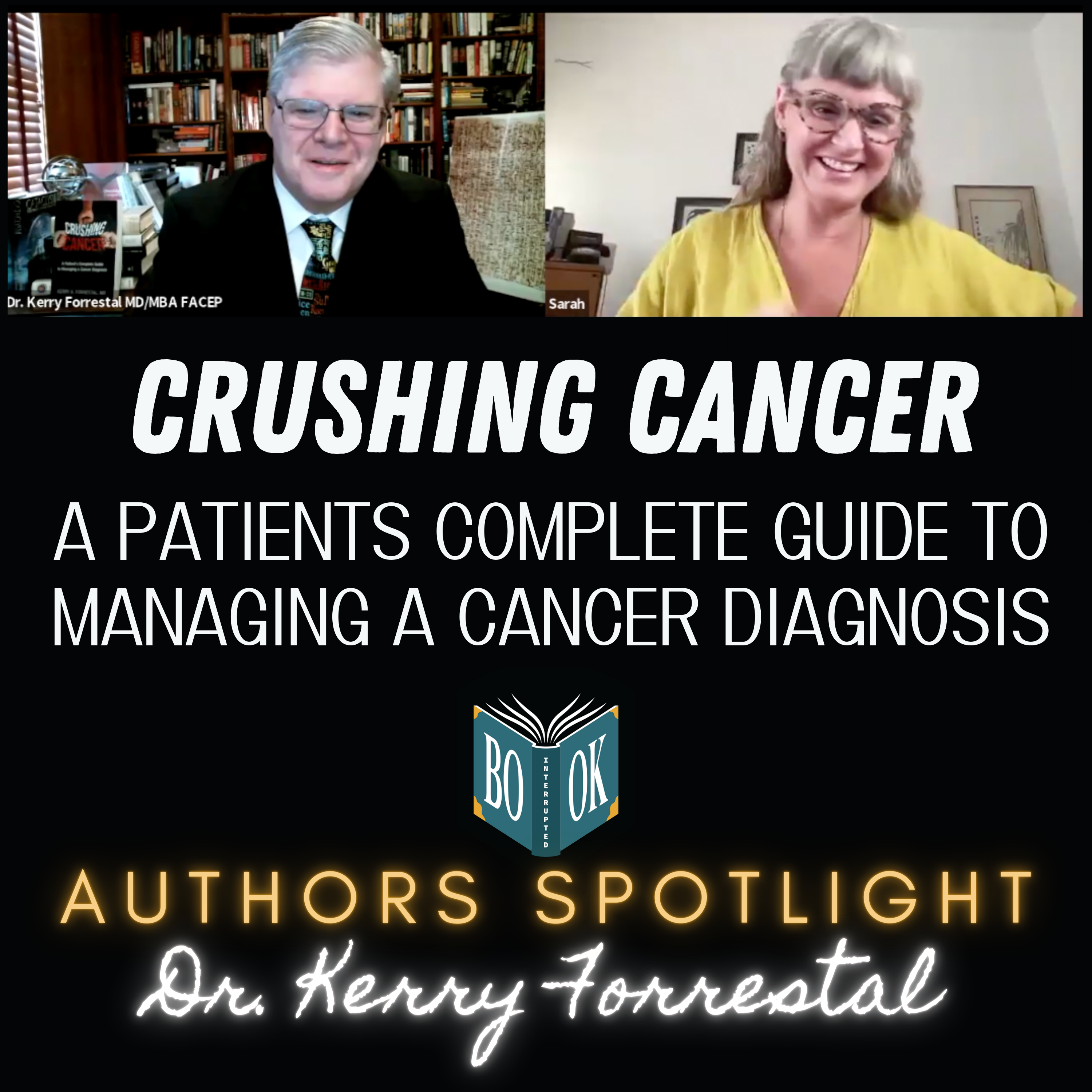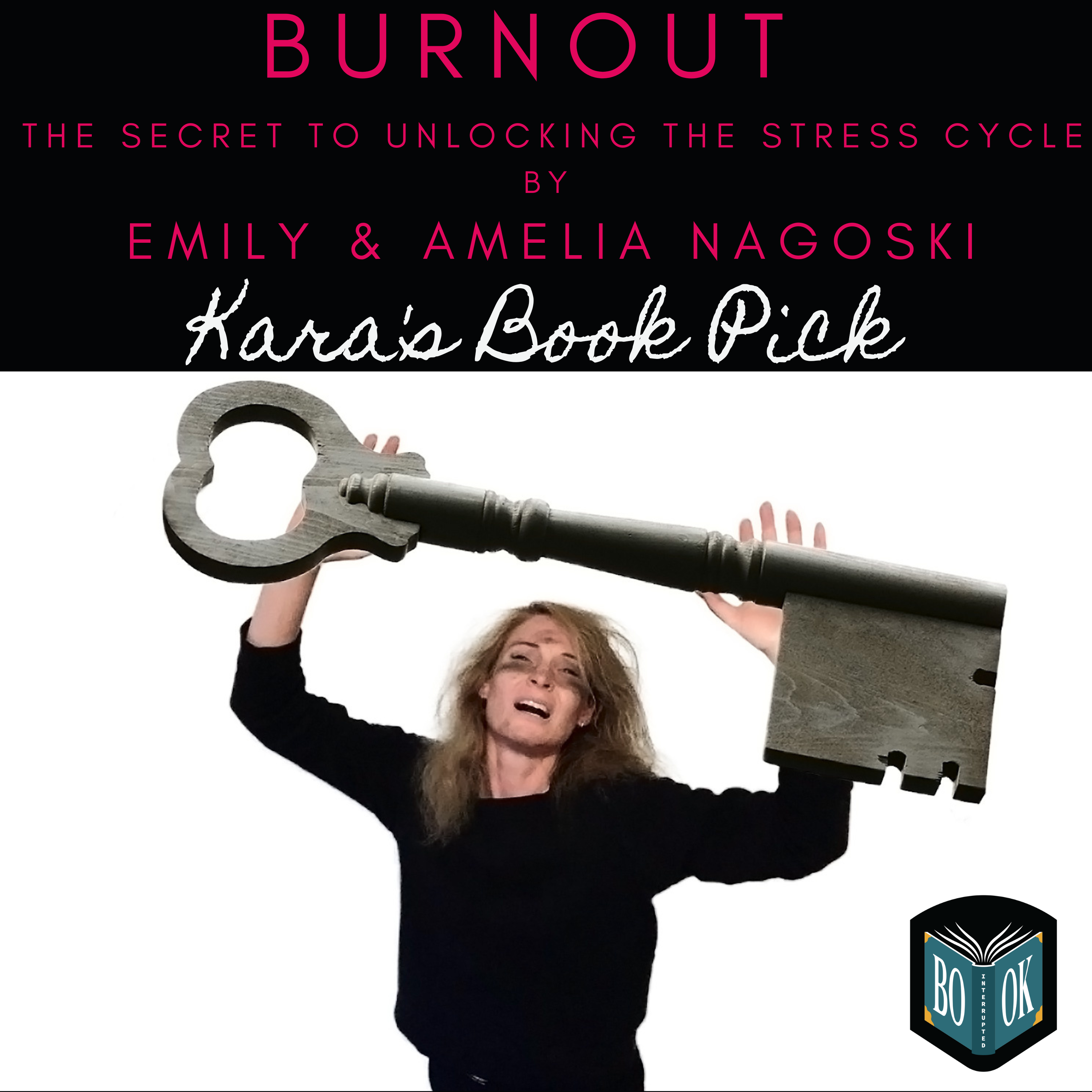Episode Transcript
[00:00:00] Speaker A: Would you like to attach a face to that voice? When you subscribe to the book interrupted YouTube channel, you get to see everybody as well as check out a bunch of extra book interrupted videos and music content. Visit the book interrupted YouTube channel to see what you've been missing.
[00:00:15] Speaker B: Parental guidance is recommended because this episode has mature topics and strong language.
[00:00:25] Speaker C: Go to read a book is the goal.
I want to learn something new.
I don't want to be disrupted.
Mind, body, soul, inspiration is the goal and we're gonna talk it out on book on book interrupted.
[00:00:56] Speaker B: Welcome to the author's spotlight. During these mini episodes, we have authors come on and tell us about their books and why we should read them. Let's listen.
[00:01:04] Speaker D: Welcome to book Interrupted authors Spotlight. Our first author on the Spotlight is Dr. Carrie Forrestel. He wrote the book crushing Cancer, a patient's complete guide to managing a cancer diagnosis. And he comes to us from Maryland, USA.
[00:01:22] Speaker E: Good morning.
[00:01:23] Speaker D: Thanks for being on the show.
[00:01:24] Speaker E: Thank you for having me.
[00:01:25] Speaker D: So why don't you give us a little summary of your book and why you think our listeners should read and use your book?
[00:01:34] Speaker E: Absolutely. So I will probably be the only author who will say from the beginning, I hope you never have to use my book. I hope you never have to buy it. I hope you never have a use for it because it's a book about what to do when you're diagnosed with cancer. So take a wild guess. How many people will have cancer in the United States. It's a worldwide disease, but I've written it specifically for the United States and specifically for a reason, which we'll get to in a minute. So, rough estimate?
[00:02:00] Speaker D: I honestly have no idea. But I do know that I don't know a single person in my life that doesn't have a family member or friend that was either diagnosed or passed away from cancer.
[00:02:12] Speaker E: Yes. So 2 million people a year in the United States will be diagnosed, and over a lifetime, one in three people. And they see that those numbers are going up. People are living longer, so there's more opportunity to get cancer. They think by maybe 2040, it might go down to one in two. So it's a pervasive thing. Now, I wrote this specifically for the United States because the United States has such a messed up health care financing system. So we do things differently than the rest of the world, and that is not a compliment. So we do things in pretty backwards way. Healthcare for profit. It's located to the United States. It's a book for what you do when you get diagnosed with cancer. Now most people say, well, you go to the doctor and they tell you to take these medicines or go for surgery or whatever, but there's a lot more to it. You have to keep the lights on. You have to manage your finances. There are things about what goes on in the workplace. A disturbing number of people have to continue to work to keep their health care insurance, because a lot of our insurance goes through employment. There's legal issues. If I become disabled, then I have a legal document that has somebody empowered to take care of my legal affairs. There are advanced directives. If you look in the book, you'll see at the back there are QR codes that will link you to every QR code for every state and territory that was available in the United States. Now, my ultimate goal is to make this a worldwide book, but unfortunately, each financial system and legal system is different. So this is my inaugural book, and it's my hope is to migrate it to kind of broader systems. That's the idea, is that this is the book, this is the DIY Manual, the Bible for what to do if you get cancer. It goes into helping people to beat it. If you can't manage your finances, if you run low on money, if you don't have gas to go to your treatment, you can't do if you don't have your copays, okay, you're out of luck. And it's terrible right now in the United States, that gofundme is one of the leading medical payers in the United States. There are 200,000. No, right now in the United States, if you look at statistics on it, something like 200,000 medical. I have got cancer, or I broke my leg, or I'm out of. There are 200,000 campaigns going on. I have a friend of a friend, a gentleman named Owen Stevens, who's fighting colorectal cancer. The gentleman was one of the people who helped develop DND. He was that second generation after Gary Giygax. And it's become very popular now and all like that. And the guy has gotten set back every which way because of how the medical system works. And the information in the book then helps him say, okay, this is what you can do if they deny you on your health care engine, okay? Take down names, because when your name gets attached to something, you start to go, hang on a sec. Maybe you learn in the book how to talk to people on the other end of the phone with the insurance so that you don't get those denials, so that you don't not get the care that you need. So that's the idea of crushing cancer, is to basically arm a patient with the knowledge that they need for something they never wanted to talk about.
[00:05:04] Speaker C: Yeah.
[00:05:05] Speaker D: And of course they want to be calm while they're trying to get Bell instead of being stressed with all the administrative paperwork and financial stress. That's horrible. Yeah, I can definitely see that. What is avoiding cancer scam? What's the cancer scam?
[00:05:21] Speaker E: The unfortunate thing in this world is that people take advantage of people who are, in desperate times, somebody who is not. It's not going well. As a scientist and as a physician, I can only offer the truth. Truth is, we're winning more and more every day on cancer. Right. We have entered that fourth amazing age of cancer care. Right. First was surgery. Second was radiation. Third was chemotherapy. And now we're in the immunotherapy age, and they're doing incredible things. But I still only have the truth to offer. And that's sometimes that some people are going to passive cancer, but there are people who come along and say, I promise you, the know, if you take my tincture of whatever, it will help. They empty the accounts of people. We're in the same generation. So I'm sure you remember Paul Newman, right? Amazing guy, right? And he had mesothelioma, which is what took his life. He ended up going down to Mexico to get coffee enemas. I mean, eventually it shortened his life. Rather than taking advantage of the time that he had, it shortened his life. Steven Jobs, guy invented the apple computer. He's a brilliant man, and he thought he could outthink science, I guess. And he had a very treatable type of pancreatic cancer. Pancreatic cancer is one of the hard ones, maybe about a 15% survival rate when things are good. But he had a special type of it, a subset that was very curable. And instead of going for the science, he went for the charlatanism, and that took his life. He could still be with us, but he went for juicing and meditation and all those things. Now there's mainstream medicine, two things that kind of come after it. There's complementary medicine, and then there's alternate medicine. Now, complementary medicine is things that make you feel better while you're going through care 100% with it. Chiropractic, acupressure, acupuncture, all of those things are proven scientifically. They've done studies that prove that, hey, these things help quality of life and outcomes. We want you. Alternate medicine is take my tincture of again, whatever. And it's going to cure your cancer when you have no scientific background to that? The analogy I always use for people is, I say this, complementary medicine. If you light a lavender calendar at the end of the day, because you've had a rough day in chemo or radiation or whatever, and it makes you feel better, the scent and all, just the calm, that's complementary medicine. If you expect that candle is going to cure your cancer, that's alternate medicine.
[00:07:30] Speaker D: Right?
[00:07:30] Speaker E: So complementary medicine. Absolutely, 100%. If you want to supplement that, that's fine. Just make sure your team knows what you're doing. Alternate medicine will empty the pockets, and it's complete nonsense. And there's a lot of scams in that. But, yeah, cancer scams are horrible. It's actually one of the reasons why I included that chapter. It was a dear friend had ovarian cancer and was without going well, and somebody down in Mexico. It always should be a sign if you have to leave the country to get your medical care. And that's not to say there aren't. With the way we do things. There is medical tourism, and some of it's quite legitimate. But when your clinic has to be located outside the United States for legal reasons, that's probably a flag. But they were going to charge her tens of thousands of dollars for something that had no basis in reality. So it was a sad conversation I had to have with her to know, Ellen, don't. This is just going to wipe your family out. They were looking at remortgaging the house, the whole nine yards, and unfortunately, she did pass.
[00:08:25] Speaker D: I'm sorry to hear that.
[00:08:26] Speaker E: She fought well and she was a great lady.
[00:08:29] Speaker D: Sorry to hear that. What about it says interpersonal dynamics? So you go into that in the book.
[00:08:35] Speaker E: Yeah. One of the things that's really draining to people when they have to deal with they're dealing with the cancer. It's a very personal thing. You have to let a certain number of people know. Your spouse, of course, will know, your family will know. Probably your work will know. I've come across some people who did not let work know because they did not feel that work would be supportive. Yeah, right. I mean, can you even imagine? But every one of those people that you tell, then there is going to be a dynamic that's significantly influenced by the cancer diagnosis, and some people will turn right around and make your cancer about them, and it can be quite draining. One of the people, Colonel Fondy, she's way up in the architecture. In the army, she had breast cancer. She's doing great. But she actually, when she told her sister, had to spend a good half hour, 45 minutes, she says, calming her sister down about her own cancer diagnosis. So some people kind of go, oh, they focus it in on them, and it can be very draining. So you have to be careful about who you let into the group. All the energy, all the positive energy and all the effort needs to flow into the patient, and the patient should never have to have that energy or whatever else flow out. So you should not have it to be supporting a sister who's gotten histrionic over your thing just because the sister always makes it about her. There's a lot of conversation about those sorts of, like, this is how you kind of take that person, put them to the side and move on with your healing. So there's a lot there. There's a lot of the interpersonal dynamics and some of the types of people that you meet, we make a joke. We call it Aunt Edna. If you want the information to go out to the entire network, you tell Aunt Edna. You say, listen, don't tell anybody, but I have. Blah. And Aunt Edna will be like the town crier, and she will act as your amplifier, so you don't have to say anything. Aunt Edna takes care of it all. So there's that sort of thing. So there's the center of the universe guy. That's the one who pulls it all to them. They'll one up you about something. Oh, you lost ten pounds. Oh, I lost 20.
There's always something. Right. So there's a lot in there about how to manage the people.
[00:10:30] Speaker C: Yeah.
[00:10:30] Speaker D: Because I can imagine that would be difficult. When you're trying to heal that, who do you tell? And. Yeah, those people that are kind of draining. And you're the one. So he's giving in your life. Yes, that would be difficult.
[00:10:41] Speaker E: In the second edition, we're going to talk a little bit about toxic positivity, the happy warrior kind of thing. I mean, feel the way you feel. You don't have to put on a show for anybody. Feel the way you feel and focus in on getting yourself well.
[00:10:53] Speaker D: Yeah, I can see that. It makes me think. One of the people on our show, one of our hosts, Kara, she's one of those aunt Aetna people. If there's anything I want to tell the group, like I'm not available or not feeling well or something, I just tell her. And it goes to everyone.
[00:11:06] Speaker E: There you go.
[00:11:07] Speaker D: And then everyone.
[00:11:07] Speaker E: Yep. They have their archetypes. Yeah, you can use the archetypes to your advantage. Thinking about it and walking through it. We all have them in our own family, so it's useful or can be.
[00:11:18] Speaker D: So I read that you give suggestions from, like that first hour or that first week. I was just curious, what is that first hour, first day? What do you suggest people to do?
[00:11:28] Speaker E: Yeah, that is a fabulous question. That is like, one of the seminal questions. And it's always interesting when people hear, what do you do? Nothing. I'm an ER guy and I wrote this because we find a lot of it in the emergency department and we have to take care of care when it goes wrong. And I see a lot of times when it could have been avoided. Cancer problems could have been avoided if people had better information. So as an ER guy, there's always that thing that says, don't just stand there, do something. Right? It's the opposite in emergency medicine, and it's the opposite in this. Don't just do something, stand there. Take a second, take a breath. Nail your feet to the ground. Don't do anything significant until you've kind of reoriented. If somebody says to you, you have cancer, the whole world just went topsy turvy on you. Nothing is the same at that moment. And you don't know, is it skin cancer that's going to be gone when I leave the office, or is it stage four, whatever cancer. So take a moment, make sure that you have somebody with you who can process information objectively. Don't give away valuable stuff. Don't make any rash decisions. Don't go to Vegas and gamble away the life savings. Take a minute and the power of a plan. We actually talked about this a little bit about how frightening it can be once you have the power of a plan, once you actually sit down and you say, okay, this is what I'm going to do, and you move forward in a rational way, it takes away a lot of the fear of everything. Once you have a plan laid out, you go into the doctor's office, you have your wingman with you. You always have somebody who's kind of objective and let them lay out exactly what's going on. I have stage 1234, whatever. And what they want to do moving forward. Now you have the wingman with you because they can hear where you can't. You'll try, but you won't be able to process that information. Now, Dr. Martin, Karen Martin. She's counselor, one of the people who helped write the book. She had gotten uterine cancer some 30 years ago. Now she's really rambunctious. She wants to run off in a direction right away, right? The doctor lays it out for her. She goes home. She had her husband Dave with her, who is absolutely the opposite. He is the most stoic, level headed guy. He's a Mercedes Benz mechanic, right? So he understands things intricately. And she goes, this is what we're going to get. And he sluice at her and he goes, he didn't say any of that. Were you even in the room to, you know, this is what we're going to do. Not this, whatever you thought you heard. So to answer the question, go back to it, what do you do? Or a minute, you do nothing. You collect yourself, you get your plan. Don't spend anything, don't commit to anything, don't do anything until you have a second to catch your breath. Reorient. And that's part of the reason why we have the book, the conversations I've had with patients about things to say. When you are ready, here it is. You just go to the page that you need, you read as you need, and you go, okay, this is what I need to know. That's the most important thing, is don't run off in a direction. Just nail your feet to the ground for a few minutes. Have somebody there who can keep you oriented, and then move forward with a plan.
[00:14:17] Speaker D: Yeah, I can see that. Because just the word cancer, I think.
[00:14:20] Speaker E: It'S a frightening word. And interestingly, I think that's a bit of a legacy. Nobody wants cancer. Of course. It's like anything else. Nobody wants diabetes, nobody wants heart disease like that. But it's a particularly frightening word. Thing is, in our world now, again, we're roughly the same age, and we grew up in a time where, when my grandfather had cancer, that was really going to go one way. So that was 1970, when he got bladder cancer. And he was a lineman for Con Ed, so he was down with the PCBs and the dioxins. And that was kind of, we would have seen that coming in this day and age. And we were talking about the ages of cancer, know, even from the Egyptians. See that little scroll back there? That's the Edwin Smith papyrus, which actually detailed some cancer surgeries. And that's what they did for many years. Along comes Marie Curie. Radiation, right? We find that radiation can knock out cancer. My grandmother had uterine cancer, where they just packed the uterus with radium pellets and hoped for the best, and she survived.
[00:15:14] Speaker D: I just read that because one of the books we're doing this season is the immortal life of packed or full of radiation.
[00:15:26] Speaker E: Rebecca sclute did just a brilliant job with that book. That was terrific. And that is one of the things, actually, if you look at the COVID of the book, those are helocells. Those are Henrietta lax's cells that I use as a background there just by way of honoring her contribution. Those hela cells have done more for cancer care than probably anything else. Those are cells that are immortalized. Other cancer cells will die off after a certain number of generations. Hers are still going from the 1950s. So there is a radiation. Then along comes Sidney Farber. We find chemotherapy in the 1950s. Right. That's come a long way. But we're in an amazing age right now of immunotherapy, where we are learning how to use the immune system to destroy cancers, and it's really a cause for hope. We are finding things that we never thought possible. There are oncolytic viruses, right? Big fancy word, oncolytic viruses. What does that mean? Well, you know how hepatitis attacks your liver? Most people are aware of that. There are viruses that will attack a specific type of cancer, like melanoma, and we can engineer these. Now we're working on that. In any case, we're teaching your immune system to go after your particular type of cancer. There are car t, and there are a lot of things that we're doing now that were not possible even ten years ago, 20 years ago. So we're living in that next amazing age of immunotherapy, where we're just going to get better and better at that. And people should be more and more hopeful. Again, you think back to the 1980s when somebody said, oh, you've got HIV your age, it was a death sentence. And now you see commercials with people running around happy on television going, yeah, I take one pill a day, I'm fine. And it's transformed in a brief period of time. You figure 30, 40 years. It's gone from that horrifying death sentence that everybody was, oh, my God. And you can't talk about it, and you can't say the word out loud to a patient. You can't tell the families to, yeah, it's on the list. It's fine. Then people, they manage it. We can cure hepatitis C now, and we're migrating that way that hopefully cancer will become that sort of thing. It's like nobody wants it, but if you get it, it's more of a headache than a life threat. If anybody goes away with anything from this interview, it's, if you have this problem, be hopeful. We have the tools to fight and that's the biggest thing you should take from this, is that we are getting better at better. We've got cancer's number in a lot of ways, and we're getting better and better at curing it.
[00:17:42] Speaker D: That's wonderful. People can find your book on Amazon.
[00:17:46] Speaker E: Yep, it's on Amazon. Barnes and Noble.
[00:17:49] Speaker D: Amazon and Barnes and noble. Great.
All right, well, that's the end of our mini episode. Thank you so much for coming on the show.
[00:17:57] Speaker E: Thank you for having me.
[00:17:59] Speaker D: Yeah. And letting us know about your book, if anyone out there, well, I'm sure many people have friends and family who have gone through cancer but are going through it right now. You can find the link for his book on Amazon on the book interrupted website, which is www.bookinterrupted.com. Or you can go to Dr. Carrie Forstal's website, which is www.crushingcancetherthebook.com.
[00:18:27] Speaker E: Absolutely. Thank you so much. It's been a delight. Thank you. Thank you so much.
[00:18:31] Speaker D: Thank you for coming on the show. I really appreciate it.
[00:18:34] Speaker E: Absolutely.
[00:18:35] Speaker B: Thank you for joining us on this episode of Book Interrupted. If you'd like to see the video highlights from this episode, please go to our YouTube channel, Book interrupted. You can also find our videos on www.bookinterrupted.com.
[00:18:51] Speaker A: Book interrupted never forget, every child matters.
